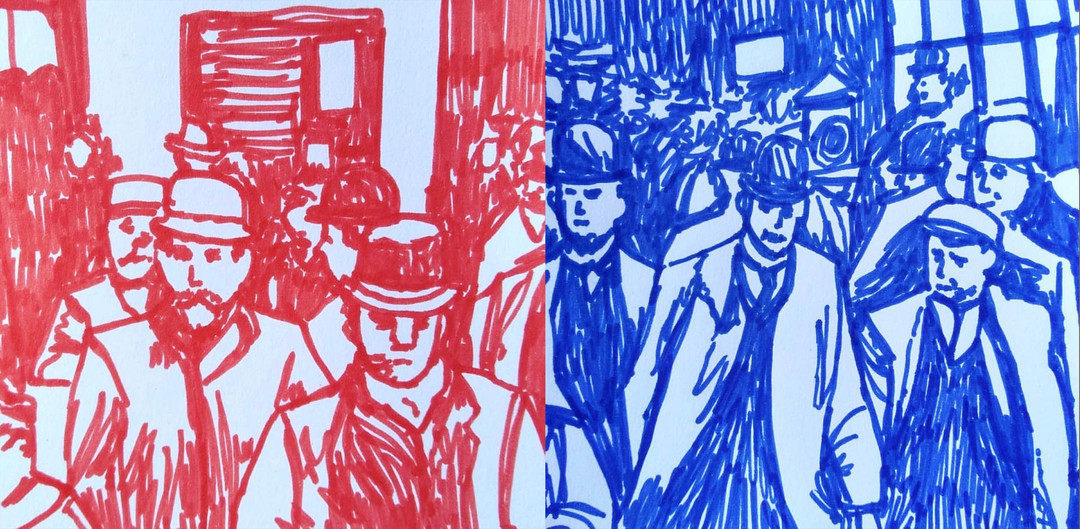12pm, sometime in February 2020: I settle into my seat and bring out my laptop to eagerly take notes on what has been one of my most interesting lectures so far this term, entitled “The Empire Strikes Back: colonialism, decolonisation and migration”.
In a course where I’m one of about 10 people of colour, I was ready to revel in the discomfort of my British course-mates as the lecturer discussed how the British welfare state we all laud and study extensively, was impossible without the exploitation of what is known as the ‘Third World’ today.
The lecturer prefaces the rest of the 50 uncomfortable minutes we will spend on the topic with the fact that Britain experiences selective amnesia when studying and analysing certain parts of its history, namely the atrocities of the Empire.
Coming from a formerly colonised country myself (Nigeria), I know all too well about the impact of colonialism — I have seen it first hand and actively embody it myself with English, the language of the coloniser, being my sole language, instead of my native Yoruba.
After discussing the physical, economic and psychological aspects of colonialism, the lecturer asks us to discuss what we were shocked by or had questions about with those sitting next to us for five minutes. Alright, the five minutes are over, time to share with the lecture what you were shocked about:
“How did Britain manage to keep all these countries colonised?” — White Man A
“As a business model, the Bengal Famine didn’t make sense — why would they levy taxes instead?” — White Man B
The only person of colour who answered said she was surprised at how Winston Churchill and future governments had failed to issue a formal apology at the least for the Amritsar Massacre in 1919. Okay, fair (?) thing to be shocked at.
At no point did anyone say they were shocked at the violence of what had happened — the focus from the audience was solely economic and logistics based. When asked what certain buzzwords like “colonialism”, “slavery” and “imperialism” meant, a blanket of discomfort descended on the room.
When the lecturer asked if anyone knew who was compensated when slavery was ended, and an eager me shot up my hand and said “the owners of the slaves (for their economic losses)”, I felt a silent, but very loud gasp.
This selective amnesia the lecturer talked about was happening right there and then. Quite frankly, I was amazed at my course-mates ability to both pay attention while eagerly typing notes and also turn their heads away at the same time.
On a more positive note, I was happy to see the psychological effects on the colonised discussed — we often leave the discussion about post-colonialism to the political and economic effects, and “What India might have looked like today” (direct quote from White Man C) as opposed to speaking more about the psyche of the colonised.
Citing Frantz Fanon, a new but exciting name to me, the fact that the colonised not only view themselves through the eyes of the coloniser resulting in lowered self-esteem but also believe they are morally inferior to the coloniser was made evident.
After being shown a clip of a dramatisation of Fanon’s “Black Skin, White Masks”, we were asked to point out what Fanon felt surprised about upon moving to France from Martinique. Again, the blanket of discomfort slowly, but surely descended on the room as if it was set on a timer. The collective eyes of the lecture theatre turned away from the screen.
A woman of colour raised her hand and answered, correctly so, that Fanon was surprised that the idealised version of France he had in his head was indeed a lie when he got to metropolitan France and was ‘otherised’. The look of a white, French mother and her child ‘shattered’ him.
“I was amazed at my course-mates’ ability to both pay attention while eagerly typing notes and also to turn their heads away at the same time.”
The distinction between the idealised ‘mother country’ in the eyes of the colonised, and the reality of racism in the metropolitan country, is very interesting to me.
I was first introduced to this idea whilst watching a dramatisation of Andrea Levy’s “Small Island”, starring David Oyelowo. His character, Gilbert, has an idealised vision of the ‘mother country’ (England) and thinks he will be accepted, given all the trivia he’s been fed during his British education in Jamaica. (Might I add that people in the commonwealth can know more about the metropolitan country than the native inhabitants — this feeds into the glorification of the colonial power by the colonised).
When he arrives, he is met with rampant racism — he realises that his ideal is in fact, not the reality. Many Commonwealth citizens (including the infamous Windrush Generation) were encouraged to move to the UK to rebuild it after it was reduced to rubble following the Second World War, but are now being mistreated and exploited during this worldwide pandemic. Again, collective turning away of eyes in the lecture. I could actually feel the denial of racism in the air, I could practically taste it in my coffee-induced mania at 12:43 pm.
“The collective eyes of the lecture theatre turned away from the screen.”
Look, I know it’s impossible to expect everyone to know everything, every part of human history, every part of their history. However, bell hooks said we aren’t passive vessels of socialisation. It is an active choice, every waking day of your life, to be ignorant.
To say “Oh, I’m not racist! You’re over-exaggerating, calm down” when confronted about micro-aggressions or ways you’ve made people of colour feel uncomfortable. Even the amazing Bristol which fuels your cocaine habit, white girls, is a living, breathing remnant of Britain’s “past” involvement in the slave trade. Our glorious Wills Memorial where we’ll all graduate was built off of money made from the slave trade. I could see people’s faces contorting — eyebrows being raised, fingers stopped typing when he discussed these psychological effects of colonisation. Wow, thinking about others for once!
Lecture finishes. I have never seen my course-mates tidy up and leave so quickly. The blanket of discomfort had turned itself into a sleep mask that permanently obscured the conscience of some.















